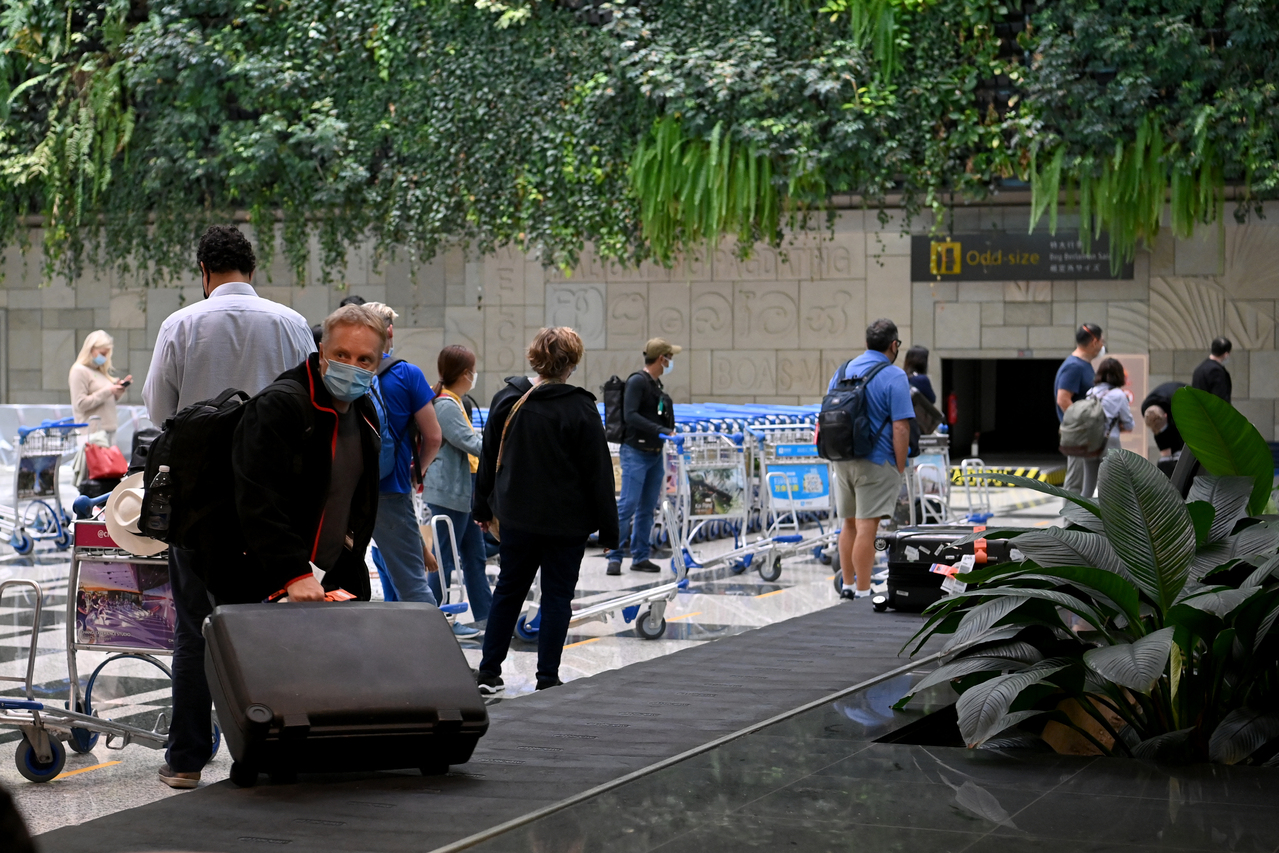Singapore's building of economic and other links key amid Covid-19 disruptions: Iswaran
Sign up now: Get ST's newsletters delivered to your inbox

Singapore has halted further expansion of its VTL scheme for the time being and tightened its border measures in light of the new variant.
PHOTO: ST FILE
Follow topic:
SINGAPORE - Building on Singapore's economic, digital and transport links takes on greater salience at a time when the Republic is dealing with disruptions caused by Covid-19, said Transport Minister S. Iswaran on Friday (Dec 10).
Singapore has been strengthening its existing partnerships through free trade agreements as well as building linkages in newer areas of opportunity, which are ultimately about creating opportunities for its businesses and people to benefit, he added.
He was speaking to the media at a virtual conference on the sidelines of his working visit to Brussels and London, which is focused on Singapore's efforts to enhance its economic, digital and transport connectivity.
Addressing questions on Singapore's vaccinated travel lanes (VTLs) and when the deferred VTLs would start, Mr Iswaran stressed that it is key for Singapore to understand the nature of the new Omicron variant before taking further steps.
Three planned VTLs for Qatar, Saudi Arabia and the United Arab Emirates were deferred indefinitely on Nov 28, as a precautionary measure to reduce the risks of importing the Omicron variant to Singapore.
Singapore has also halted further expansion of its VTL scheme for the time being and tightened its border measures in the light of the new variant.
"It is a prudent measure for us to... take a pause, consolidate what we have, assess the impact of the new variant before we move forward," he said.
Mr Iswaran, who is also Minister-in-charge of Trade Relations, said that initiatives to strengthen the Republic's connectivity on various fronts, such as the development of digital partnerships with Britain and the European Union, help to sustain the country's long-term competitiveness.
On Thursday, Singapore said that it has "substantially concluded" negotiations with the United Kingdom on the UK-Singapore Digital Economy Agreement (UKSDEA).
The agreement will advance end-to-end digital trade, enable trusted data flows as well as encourage digital economy participation.
The pact, which will likely come into force early next year, is the first between an Asian and a European country.
Singapore has concluded similar digital economy deals with Australia, Chile and New Zealand, and is in talks with South Korea on one.
Mr Iswaran said in a Facebook post on Wednesday that Singapore and the EU are working on a digital partnership agreement, which will facilitate cooperation in the digital economy.

Singapore and the UK also signed a memorandum of understanding to strengthen cooperation in co-innovation and joint research and development on Thursday.
Singapore fintech Nium said that the UKSDEA serves as an example of how robust collaboration and future-fitting trade policies can bolster innovation in an increasingly connected digital world.
Nium global head of public policy Katie Mitchell said: "Agreements such as these will undoubtedly facilitate more transparency, cooperation, and connectivity across our economies, while serving as an important example of the benefits of cross-border collaboration and exchange at a time when it's needed most."
Mr Iswaran said it is key for the country to sustain its long-term efforts on connectivity and ensure it remains an important hub in the global economic, trade and transport flows, even as it deals with the disruptions caused by Covid-19 to economies and supply chains.
During his trip, which began on Dec 5 and ends on Saturday, the minister also led the Singapore delegation to the 32nd Regular Session of the International Maritime Organisation (IMO) Assembly.
Singapore has been a member of the IMO since 1993 and was re-elected to the council on Friday evening.
"We are using this opportunity to take stock of the work we have done with the IMO and also to chart the way forward... in particular, our priorities include how we can reshape the future of shipping and the maritime sector through innovation, through digitalisation and also decarbonisation, which is key from the overall climate change perspective."

